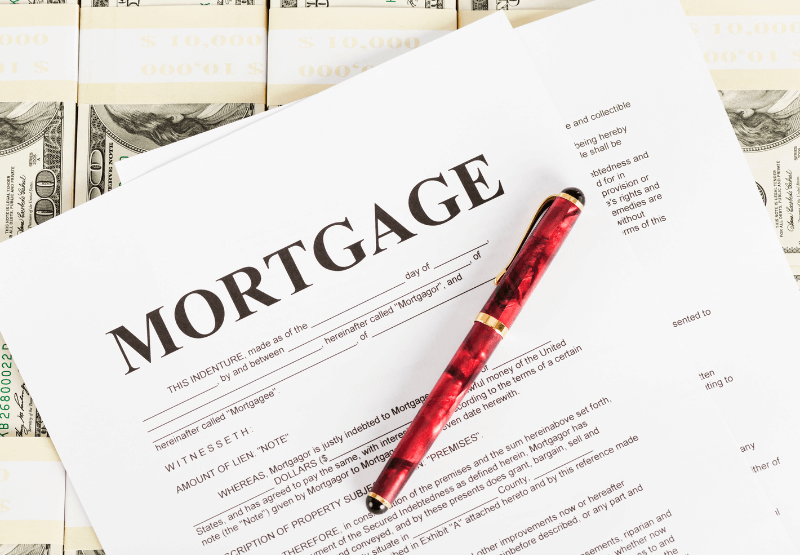
Owning a home often entails dealing with a mortgage loan, and the journey to homeownership sometimes leads you down unexpected paths. Perhaps you’ve found your dream home, or life circumstances prompt you to relocate to New York or California.
Can I sell a house I have a mortgage on? Whatever the reason, selling a house with a mortgage attached can seem daunting. But it’s feasible with a keen understanding of the real estate market and some guidance on navigating mortgage payments and closing costs.
Let this guide be your compass. And if you think, “I need to sell my house fast in Minneapolis,” know that reliable solutions are available.
Can You Sell a House with a Mortgage?
How does selling a house you haven’t paid off work? Selling a house with an outstanding mortgage balance is common in real estate transactions. Many homeowners often believe they must own their property outright to sell it, but that’s a misconception.
When you decide to sell your current home, the sale proceeds will first go to your mortgage lender to pay off the loan balance, with any remaining money after paying off other liens and expenses, such as agent commission and property taxes, coming to you.
Determining the payoff amount with your lender is crucial to understanding how much you might have left after the sale. For those in locations like Minnesota looking to expedite the selling process, we buy houses in Maplewood and can help you get your happy ending.
However, be aware of potential prepayment penalties from your mortgage lender and consult with a realtor to ensure you get a fair listing price.
How to Sell a House with a Mortgage
What happens when you sell a house with a mortgage? A structured approach can simplify selling a house with a mortgage attached. The two most significant components of a mortgage sell house are understanding your remaining loan balance and determining the right time to sell in the local market.
Ensuring you make informed decisions in these areas can drastically affect the sale’s success and financial well-being. If you need the cash soon, try to sell your house fast in Bloomington. Now, let’s delve deeper into these critical components.
Remaining Loan Balance
Can I sell my house while paying the mortgage? First, homeowners must determine their outstanding mortgage balance. Contact your mortgage lender and request a payoff quote. This amount represents what you owe at a specific closing date.
Bear in mind this quote may include prepayment penalties and other fees. The amount left after this deduction from the sale price is generally what you’ll pocket, minus any additional costs, including agent commissions and possible home upgrades.
It’s also worth considering if you’re looking for a cash offer instead, which might change the dynamics of the payoff.
Finding the Right Time to Sell
Timing is paramount when you intend to sell a house with a mortgage. Assess the real estate market conditions in your area. Are properties selling quickly? Are interest rates favorable? Such factors influence buyers’ readiness.
For instance, when mortgage interest rates are low, more buyers are motivated to purchase, potentially increasing the value of your home. Understanding local market trends and your home’s market value can maximize your sale proceeds.
If you need more clarification about the market pulse in Minnesota, consult with cash home buyers in Minnesota who can provide insights and offer a hassle-free sales process.
Setting Your Listing Price
The listing price is crucial in attracting potential buyers to sell a house with a mortgage. When setting this, consider the outstanding mortgage balance, local market trends, and any improvements made to the property.
Comparative market analysis, which evaluates recently sold properties of similar size and amenities in your vicinity, can offer a ballpark figure. It’s a delicate balance: price too high, and you risk deterring buyers, but price too low, and you might leave money on the table.
Furthermore, if your property has unique features or upgrades that distinguish it from others, this can justify a higher asking price. However, it’s essential to remain realistic and flexible, adjusting according to the real estate market feedback.
Fixing Any Repairs in Your House
Before listing your house, addressing any glaring repairs or maintenance issues is advisable. Homes in better condition often fetch better prices and sell faster.
While significant renovations might not always provide a return on investment, minor fixes like patching holes, fixing leaky faucets, or a fresh coat of paint can make a difference. It improves the home’s appeal, making it more attractive to potential buyers.
Remember, first impressions count, and buyers are more likely to make an offer if they feel the house has been well-maintained. Moreover, homes in excellent condition are less likely to have deal-breakers arise during inspections, ensuring a smoother sale process.
Preparing Your House to Sell
Preparing your house for sale is an integral step in the selling process. Begin with decluttering, which involves removing personal items, excess furniture, or unnecessary belongings.
A decluttered house appears more spacious and allows potential buyers to visualize their belongings in the space.
Conduct a thorough cleaning, ensuring every corner sparkles, from the baseboards to the ceiling fans. Additionally, consider giving your walls a neutral paint coat, as it provides a fresh backdrop and appeals to a broader audience.
Lastly, ensure that any maintenance issues, big or small, are addressed, as a well-maintained home is always more enticing to buyers.
Staging Your House to Sell
Staging a house is about creating an inviting space that allows potential buyers to envision themselves living there. Start with a neutral color palette, which offers a blank canvas for buyers’ imaginations.
Arrange furniture in a manner that highlights the functionality and spaciousness of each room. Remove family photos and personalize items, focusing on neutral decor that appeals to the masses.
Enhance lighting by using bright bulbs and opening window treatments to let natural light pour in. Remember the curb appeal!
A manicured lawn, potted plants, and a welcoming entryway can significantly increase your home’s attractiveness. Although an investment, professional staging can sometimes offer a substantial return by quickening the sale or fetching a higher sale price.
Closing Process and Costs
The closing process marks the final steps in a real estate transaction. After agreeing on the sale price and undergoing inspections, both parties move towards closing.
During this phase, both the buyer and seller settle any outstanding costs. Sellers might incur agent commission, title transfer, and other local or state fees.
Homeowners must also ensure that the payoff amount for their existing mortgage is settled and any liens on the property are cleared. It’s essential to account for these closing costs when determining the net proceeds from the sale. A local real estate agent or escrow company can provide a detailed breakdown of expected costs, ensuring no surprises on the closing date.
Need to Sell Your House Fast?
We make selling your house a simple affair – even if it has a mortgage attached.
Just fill out the form below or give us a call at: (612) 260-5577 to get your free, no-obligation cash offer!
Can You Sell Your House if You Have Negative Equity?
Negative equity occurs when the outstanding mortgage balance exceeds your home’s market value. Essentially, you owe more on your mortgage than your home is currently worth.
So, can you sell your house in this situation? The simple answer is yes but with complications. One solution is a “short sale,” where your mortgage lender agrees to accept a sale price less than what you owe on the mortgage. However, this process can be lengthy and requires approval from the lender.
Additionally, a short sale can impact your credit score similarly to a foreclosure. Before proceeding with a short sale, homeowners should be aware of potential tax implications, as the difference between the sale price and the loan balance might be considered taxable income.
Consulting with a real estate expert and personal finance professional is crucial in such situations to understand all possible outcomes and make informed decisions.
Things You Need to Know About Selling a House During A Mortgage
Selling a house while still under a mortgage is common and feasible, but homeowners should be armed with the correct information.
Firstly, know your mortgage balance. Before selling, get a mortgage payoff quote from your lender, giving you the exact amount needed to clear your mortgage as of a specific date. Next, be aware of prepayment penalties.
Some mortgage agreements have clauses that impose penalties if paid off early. It’s also important to consider the local real estate market conditions. If it’s a seller’s market, you may fetch a higher listing price, covering your existing mortgage and even providing extra for your next home’s down payment.
Remember, the sale proceeds first go to paying off the existing mortgage. Anything left after all sales costs, including agent commissions and closing costs, is your profit.
Lastly, working with a knowledgeable realtor who understands the intricacies of selling homes with existing mortgages is always wise. They can guide you through the process, ensuring you make informed choices.

Conclusion
Selling my house with a mortgage: What to remember. Navigating selling a house with a mortgage attached can seem daunting. However, with the proper knowledge and expert guidance, homeowners can successfully maneuver the landscape, even in negative equity situations.
The key lies in understanding the intricacies of your mortgage agreement, being aware of market conditions, and making informed decisions.
Whether you’re facing a property needing repairs or just aiming to make a strategic move in the real estate market, being equipped with the correct information is pivotal. Consult with professionals to ensure a smooth and rewarding sales experience.
